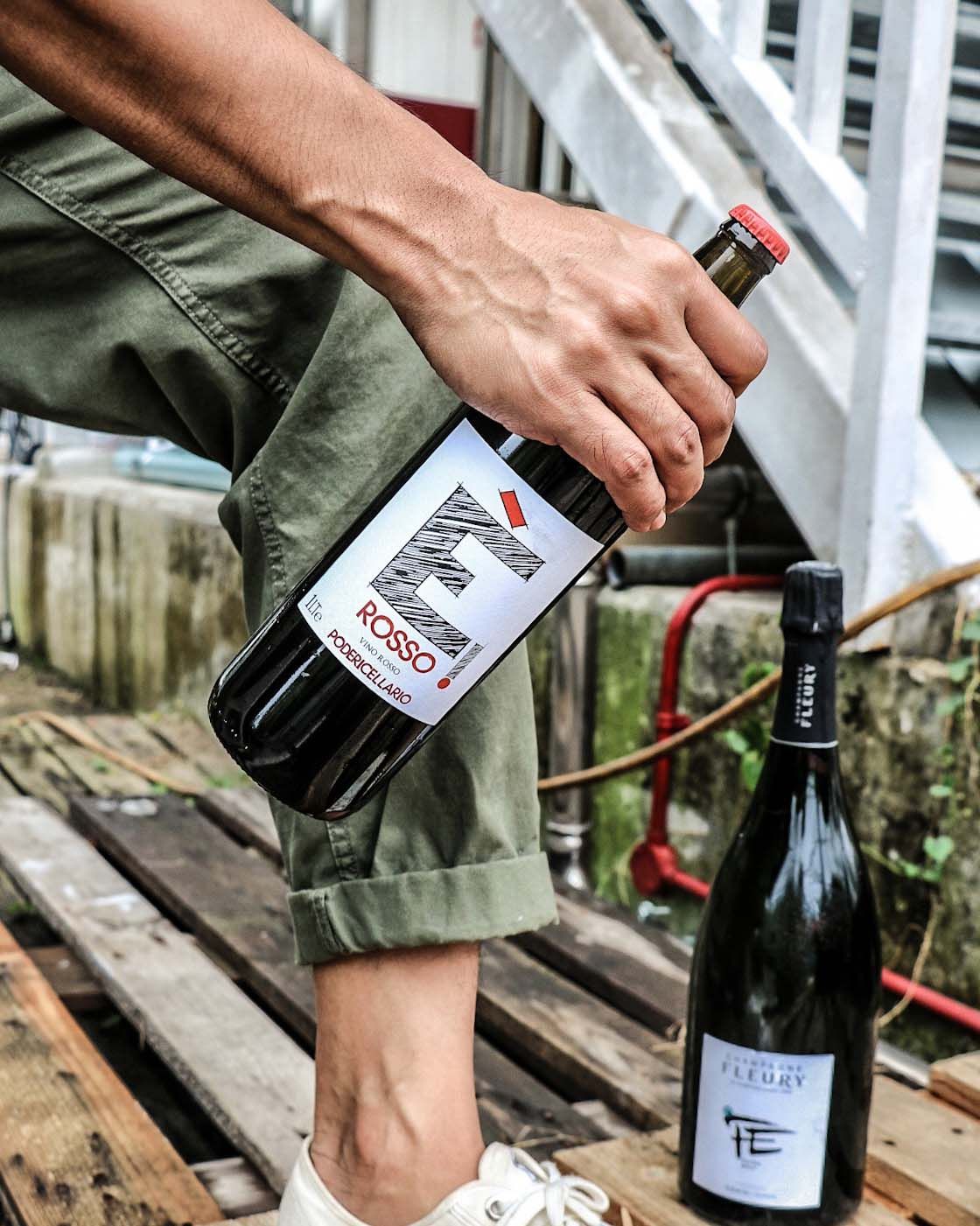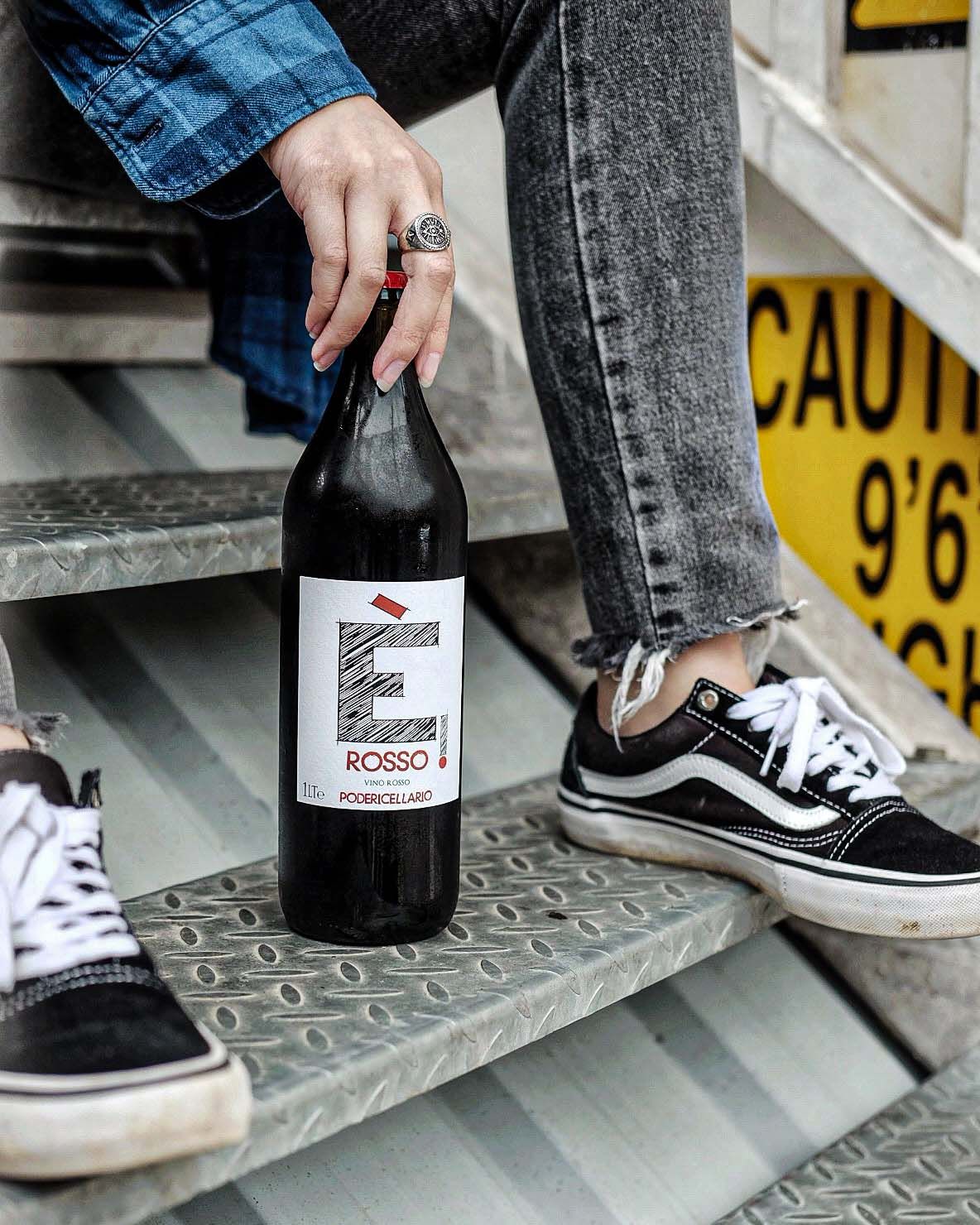Five years after the first wave of natural wine bars unlocked the doors to a larger audience, the scene has evolved. We check in with four new wine bars about evolving trends and what to expect on progressive wine lists
Five years ago, drinkers in Singapore were just beginning to understand the terms “skin contact”, “orange/amber”, “pét-nat” and “glou glou” (literally “glug glug”, or easily quaffable wines) that arrived with the proliferation of natural wines in Singapore. Fronting that trend were the rebellious wine bars—Wine RVLT, Le Bon Funk, Bar Cicheti—all of which are still going strong. Nothing much has changed at these establishments: they still largely do not have a wine list (bottles are displayed with prices handwritten with chalk), deploy alternative music playlists, and offer mostly natural wines and fewer conventional ones.
Another thing that hasn’t changed: the ambiguity of the term “natural wine”, which is not codified the same way organic and biodynamic wines are, but are often placed in the same category. (See our sidebars for a quick refresher course on natural wines.) Meanwhile, a new crop of wine bars has sprung up, carrying mainly natural wines or blending them into their wine lists. The folks behind Fool, Casa by Remy Lefebvre’s Wine Room, Club Street Wine Room and Drunken Farmer tell us more about today’s wine bar trends, who the drinkers are, and what wines to look out for.
Still curious about funk
At Fool, the exuberant new concept by chef-owner Rishi Naleendra and group beverage manager Vinodhan Veloo, the wine menu aims to debunk the stigma of stuffiness around wines. In a retro-cool dining room, the gastronomic small bites are paired with a wide range of wines, sourced from more than 60 distributors. Here, you are as likely to order a conventional Bordeaux as you are a natural bottle from Loire—no one bats an eyelid if you like both. In comparison to five years ago, “people are a lot more well informed these days”, says Veloo. “Before, people would assume that if it was orange, it was probably a natural wine. Or if it had a funky label, the wine inside it would be funky too. But these misconceptions seem to have mostly cleared up.”
Over at Club Street Wine Room, operations director and head sommelier Amir Solay reckons that while audiences are now much more receptive and knowledgeable about natural wine, “there are some who still don’t understand it, especially the taste and the nose aspect of it, let alone the purpose”. That’s why he has sought out research to feature different spectrums of winemaking styles on the wine list, from amphorae‑aged and underwater‑aged to natural and lesser‑known grapes. Wines that are amphorae-aged, even if not made naturally, have an oxidative effect that may be similar to natural wines, helping customers understand and maybe accept more of the funk associated with natural wines. Underwater‑aged wines may have different results that range from higher intensity on aromas to even a slight salinity—again bringing customers to a new range of flavours that can help them learn more about wines other than conventional styles.
“It’s all about engaging our guests who are keen to try different wines, not only by variety or region but by the way they’re being produced,” says Solay. “Natural wine fits the bill—a lot of consumers are still curious about what natural wine is all about, so we just demystify it in our own little way.”
Don’t miss: Wine Crush: What Is Pét-Nat And Why Should You Be Drinking It?



